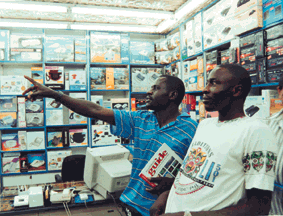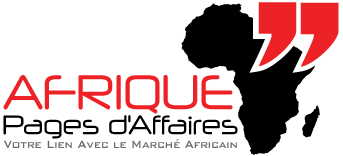>> Business Guide Africa > Business in Tanzania
L'exportation de marchandises en Tanzanie
Planning to export goods to Tanzania? Follow these simple guidelines to ensure your goods arrive in time...
F or exporting goods to Tanzania, there are some formal governmental procedures to be taken into consideration. The following document will describe the procedures that have to be passed and it will also state what is required from you at the different stages. Unless the following guidelines are cautiously and timely followed up there will most certainly be delays in shipment of goods which will consequently result to late clearance and delivery of the goods to the final customer.
The supplier can be held responsible for any additional costs incurred on shipment due non-compliance of the import procedures.
Import Declaration Form (IDF)
All imports to Tanzania require an IDF. When the importer in Tanzania applies for an IDF, the information to be filled out on the application is to be provided by the supplier together with a Proforma Invoice
.
Following information is required on the Proforma Invoice to facilitate accurate application of IDF.
The information to be supplied by the exporter includes i) Specification and a clear description of the quantity and quality of the goods, ii) Free On Board (FOB) Value iii) Freight Value iv) Customs Harmonised Commodity Code v) Currency of the payment vi) Mode of Transportation, vii) Goods Country of Origin viii) The Proforma invoice number and final invoice number must read same.
As per the rules of Tanzania Revenue Authority all exports into Tanzania will are subject to Destination Inspection by Tanzania Inspection Service Company (TISCAN). This is a Tanzanian registered company and a member of the COTECNA S.A GROUP.
The main objectives of Destination Inspection is to verify the quality and quantity of imports and to assist Customs with the collection  of the correct amounts of duties and taxes. Destination Inspection also provides Customs with an independent opinion of the Dutiable Value for Customs purposes and to verify the accuracy of tariff codes classifications.
of the correct amounts of duties and taxes. Destination Inspection also provides Customs with an independent opinion of the Dutiable Value for Customs purposes and to verify the accuracy of tariff codes classifications.
As soon as an importer has arranged to import goods and has entered into a contract with an overseas supplier, he should apply to his Commercial Bank for an Import Declaration Form (IDF). The importer must present a Proforma Invoice for the goods to be imported and will be obliged to pay a Destination Inspection Processing Fees of 1.2 per cent of the FOB value to his Commercial Bank.
The Bank will then transfer the IDF and Proforma Invoice to Importer and TISCAN in Dar-es-Salaam, usually within the same working day.
Importers and agents have to ensure that an IDF with all relevant Documents reach the inspection company at least 10 working days prior to arrival of the goods.
Once TISCAN receives the IDF and Pro forma Invoice from the Bank, a preliminary review of the documents is carried out and the details entered into TISCAN computer system. TISCAN then electronically transmits the IDF data to affiliate in country of export for documentary data verification.
Upon receipt of original documentation from suppliers, TISCAN shall prepare an Internal Findings Report (IFR)
Upon receiving the IFR and there is no discrepancy in the importer’s declaration, TISCAN issues a Preliminary Classification and Valuation Report (PCVR) and Declared Classification and Valuation Report (DCVR). The PCVR / DCVR provides TISCAN’s opinions on values, classification and level of Intervention / Inspection determined by the CRMS.
If importer accepts PCVR, he signs it and applies for a Single Bill of Entry (SBE). Documents to be submitted together with the application include PCVR, IDF copy, Original Shipping documents like Commercial Invoice and Ocean Bill of Lading together with original duty/taxes exemption documents (if applicable).

Annoncez dans le magazine
Magazine en ligne
Télécharger Annuaires Afrique
Ajouter votre Profil de l'entreprise
-
 Arabian Jerusalem Company:
Arabian Jerusalem Company:
L'un des principaux fournisseurs de machines et de matériel de construction neufs et d'occasion. Les produits incluent des Grues, Jantes Chargeurs, Bulldozers, niveleuses, rouleaux compresseurs, Tractopelles JCB, Pelles, générateurs, compresseurs d'air, etc .. Bétonnières -
 Global Auto Parts:
Global Auto Parts:
Fournisseur de toute une gamme de pièces d'automobiles après-vente pour une grande variété de voitures. Recherche distributeurs et des agents en Afrique... -
 World Wide Auctioneers:
World Wide Auctioneers:
Auctioneers de machines neuves et d'occasion contruction, de machines industrielles, de transport et d'équipements lourds. World Wide Auctioneers est également l'agent pour Unic Grues et un nom de renommée mondiale dans le dépôt de machines et d'équipements lourds ... -
 Hollywood Style Cosmetics:
Hollywood Style Cosmetics:
Gamme complète de produits cosmétiques qui sont extrêmement populaires auprès des acheteurs africains. La société offre des promotions pour les clients africains et la recherche de distributeurs en Afrique... -
 Solite Batteries:
Solite Batteries:
Batteries Solite gagnent en popularité dans les marchés africains en raison de leur longue durée de vie et des prix compétitifs. Contactez directement les concessionnaires et économiser de l'argent
-
 Marchands de pneus à Dubaï
Marchands de pneus à Dubaï
Contactez-exportateurs à Dubaï spécialisée dans les pneus, les tubes et les batteries. Offres spéciales pour les acheteurs africains offerts... -
 Le marché des pneus en Afrique
Le marché des pneus en Afrique
Importateurs en Afrique sont à la recherche de nouvelles sources d'approvisionnement pour répondre à la demande croissante de pneus dans les marchés africains ... -
 Trouver des partenaires commerciaux en Afrique
Trouver des partenaires commerciaux en Afrique
Lignes directrices sur la façon de trouver des partenaires commerciaux, des agents, des distributeurs sur les marchés africains... -
 Répertoire des entreprises Nigeria
Répertoire des entreprises Nigeria
Télécharger le Répertoire des entreprises Nigeria en format Excel. Liste des entreprises au Nigeria sous différentes catégories commerciales...
-
Stay up to date

- Abonnez-vous au flux RSS





